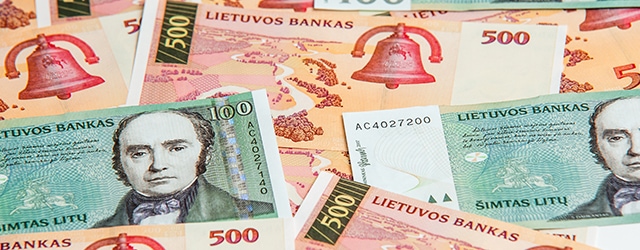Lithuania | Milestones

On January 1, Lithuania abandoned the litas, becoming the 19th member of the eurozone and joining Baltic peers Estonia and Latvia in the economic and monetary union. Many observers expect little change following the move except perhaps for local banks, which will now gain full access to the European Central Bank’s liquidity facilities and perhaps see a slight fall in their borrowing risk premiums as the litas disappears. But many anxious Lithuanians are happy with anything that puts distance between them and a revanchist Russia.
William Jackson, emerging markets economist at Capital Economics, a London-based consultancy, says the Lithuanian authorities had been preparing the ground for many years. “The litas was tied to the euro since 2002, and after the 2008 financial crisis, Lithuanians were prepared to accept tough austerity because most accepted that the euro was in their long-term interests,” he says.
The country is doing well. Last year, according to the European Bank for Reconstruction and Development, its economy grew by around 3%—one of the fastest rates within the EU—driven largely by strong domestic demand. In 2014 inflation, the current account and budget deficits were 0.9% of GDP and 2.2% of GDP, respectively. And although Lithuania is joining an economically sclerotic currency union, the EBRD expects its GDP in 2015 to grow by 3.4%.
There are some dangers ahead, though, for Lithuania’s economy. The under-performance of exports will be further hit by a slump in Russian demand as it enters recession; also worrisome is growth’s dependence on domestic demand, which reflects shortages of skilled labor and rising real wages—the latter grew by 7% to 8% last year.
“We don’t expect growth to be much above 2% in 2015, reflecting a sluggish eurozone and Russia’s crisis, and we’re concerned at rising real wages, which could impact on productivity,” says Jackson.
It’s just as well that one of Lithuania’s key priorities—as well as diversifying energy supply away from Russia—is boosting services. Invest Lithuania has long been promoting the country as Northern Europe’s leading outsourcing center, with some success: Between 2000 and 2013, investment in the shared service sector grew 82%. Eurozone membership can only further boost Lithuania’s appeal to foreign investors.



